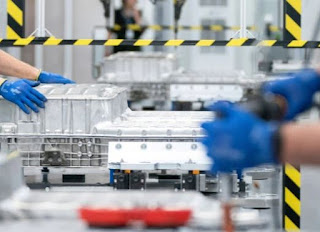Status of electric vehicles and associated policy in India
EV manufacturers and sellers were waiting for a single policy that laid out a roadmap for creating an EV ecosystem, including charging stations and manufacturing and buying incentives.
The two-wheeler segment is expected to lead the EV market in India, not cars or buses. "We will see electric two-wheelers as a way to adapt proclivity of electric mobility in India, instead of forced adoption through four-wheelers," Rebecca Lindland, senior director
In 2017, India sold about 900,000 EVs, 4 per cent of the volume of diesel and petrol vehicles sold. The government of India had a plant of converting the entire fleet of vehicles to fully electric by 2030, which it sort of scrapped.
Prime Minister Narendra Modi was expected to launch a policy on 'Faster Adoption and Manufacturing of Hybrid and Electric vehicles' (FAME-II), much-anticipated policy for the Indian EV industry, the first phase of which (FAME-I) was released in 2015.
If India manages to transform its entire fleet to fully electric vehicles, it would be one of the largest markets for EVs in the world. In the grand scheme of events, India needs to involve private players and also needs to develop a suitable charging infrastructure.
Future of electric vehicles is public transport and electric two-wheelers
The report by Bloomberg New Energy Finance (BNEF) says that India will have better progress on electric two-wheelers, rickshaws and electric buses over the next 10 years.
- The report believes that by 2040, EVs will constitute only 40 per cent of the total passenger vehicle fleet in India
- At the end of 2017, there were just 6,000 highway-capable electric cars plying on Indian roads, which is a minuscule number when compared to the overall numbers of total cars on Indian roads
- The BNEF study says that the annual sales of EVs will reach 30,000 units in 2022 as opposed to 2,000 units in 2017
- And if the sale of EVs grows as the study has predicted, they will constitute about 6.6 per cent of annual vehicle sales by 2030 and go up to 27 per cent by 2040
- Also, by 2040, about 13 per cent of the passenger vehicles plying on Indian roads will be electric by 2040


